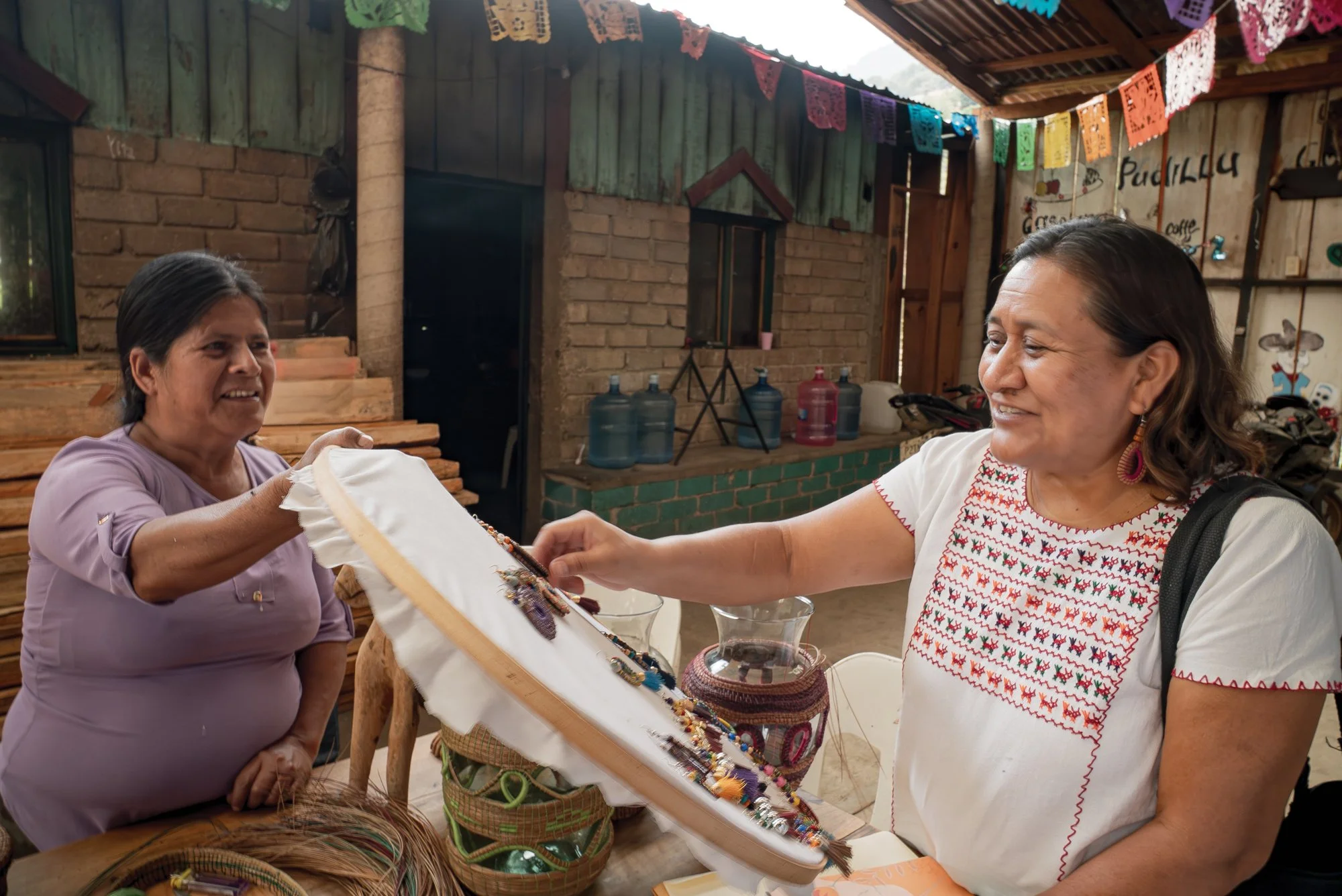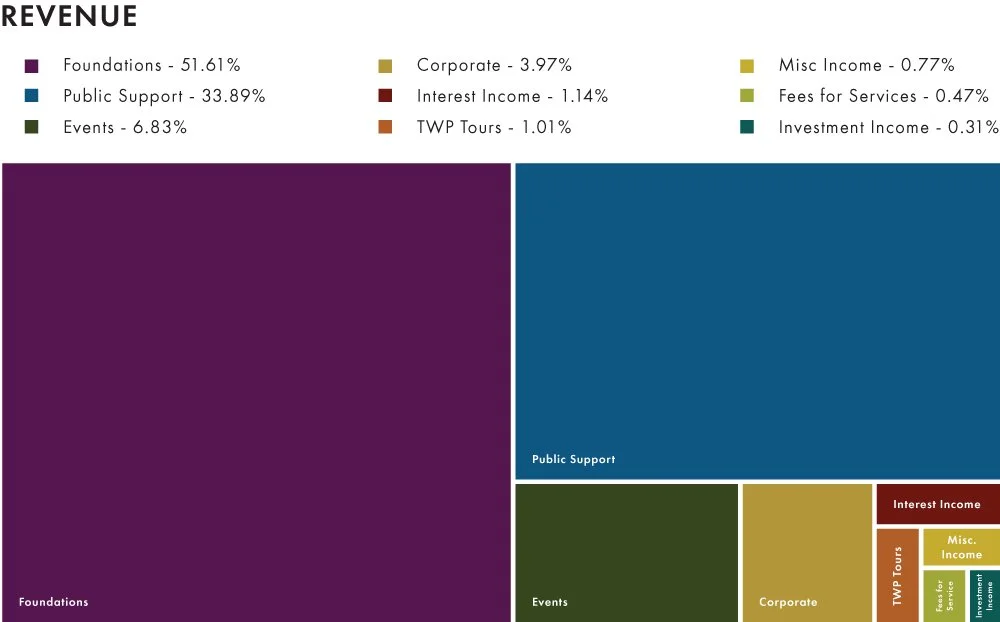
2024-2025 Annual Report
The Path Forward with Trees, Water & People
Amidst the uncertainty of our times, TWP is holding steady.
We’re stable, and we just concluded our 8th year of consecutive growth. We’ve done that through good hiring and planning, a lot of internal investment, long-term work with our partners, and trust-based relationships with our funding partners.
But we’re in the eye of the hurricane.
USAID-closures, federal funding freezes, migration shifts, and so many other ripple effects are changing the environment in which we work. The challenges communities face are more pressing than ever, and though TWP remains resilient, we’ll need a great deal of support from our network to counteract growing instability, funding gaps, and climate vulnerability.
In Colorado and New Mexico, our ILP team is pushing forward with ambitious forest restoration and fire mitigation, working to secure Tribal territories and communities. We’re asking private philanthropy to step up in new ways as public lands are threatened, and federal funding runs dry.
In Mesoamerica, we’re focused on the long-term stability of our partners. Our investments in local economies and robust organizations are even more essential as the region grapples with social destabilization from funding losses. It’s time to build capacity that will stay in the region, and TWP is well positioned to do that.
We’re facing turbulent times, and there are hard days ahead for our partners and the communities we serve. But we’re moving forward, and thinking generations ahead about what we can do to thrive regardless.
Thank you for sticking with us for the journey.
Sebastian Africano
Executive Director

Investing in Future Stewards:
Our Partnership with the Ancestral Lands Conservation Corps
As our work in New Mexico has expanded, we’ve focused on partnerships that unite conservation efforts with local employment opportunities, attending to the connections between ecological and economic stability. One of our key partners, the Ancestral Lands Conservation Corps (ALCC), has been instrumental in employing Native youth and adults to carry out conservation and restoration initatives within their ancestral lands.
ALCC reduces barriers to participation in conservation work by collaborating with Tribal communities, offering stable employment, and providing all necessary equipment, clothing, and gear. From constructing fencing, to building river restoration structures, to reforesting fire-disturbed areas, we’ve partnered with ALCC to implement much of our work in the region. Hiring Native crews not only supports local employment, but also builds on a broader momentum to reintegrate traditional knowledge and cultivate Tribal leadership in land management.
“One of the biggest issues facing our Indigenous lands is having the resources to be able to manage those lands in the ways Tribes know are needed... Making sur e that those resources get to the Tribes and that they’re able to utilize their traditional knowledge to manage those lands, pairing them with Western science, but placing value on that traditional knowledge. That’s something I’ve been excited to see more funders prioritizing.”
– Chas Robles, ALCC Executive Director
Our recent award of a 1.1 million dollar America’s Ecosystem Restoration Initiative grant will help sustain our partnership with ALCC over the next four years as our restoration work in the Jemez Mountains expands. Receiving long-term commitments from funders means we can make long-term commitments to the projects, goals, and livelihoods of our partners.
“Investing in Native youth and young adults is a top priority for our Indigenous Lands Program. Providing them with career readiness opportunities with hands-on projects allows them to learn new skills, build networks, and get compensated for their work, creating income for them and their families. Native youth are our future warriors and stewards - it’s critical that they are involved in today’s conservation work to be prepared for tomorrow’s management.”
– James Calabaza, Trees, Water & People Indigenous Lands Program Director
2023-2024 Financial Report
Revenue
| Foundations | $1,477,041.00 |
| Public Support | $969,728.00 |
| Events | $195,382.00 |
| Corporate | $113,513.00 |
| Interest Income | $32,516.00 |
| TWP Tours | $29,000.00 |
| Misc. Income | $21,918.00 |
| Fees for Services | $13,520.00 |
| Investment Income | $8,875.00 |
| Total | $2,861,492.00 |
Expenses
| Mesoamerica Program | $1,164,773.00 |
| El Salvador | $6,844.00 |
| Guatemala | $479,457.00 |
| Honduras | $638,925.00 |
| Mexico | $39,547.00 |
| Indigenous Lands Program | $1,028,199.00 |
| South Dakota | $130,656.00 |
| New Mexico | $413,667.00 |
| CO/Local | $483,876.00 |
| Management & General | $361,412.00 |
| Fundraising | $389,844.00 |
| Total | $2,944,228.00 |
Statement of Financial Position
| Current Assets | $1,203,670.00 |
| Property and Equipment | $970,983.00 |
| Fixed & Other Assets | $149,154.00 |
| Total Assets | $2,323,807.00 |
| Total Liabilities | $492,201.00 |
| Net Assets | $1,831,606.00 |
| Total Liabilities & Net Assets | $2,323,807.00 |
| *Ending Net Assets | $1,831,606.00 |

Growing Grassroots Organizations in Mesoamerica
As the effects of USAID closures, deportations, and economic shifts ripple through Mesoamerica, our work to strengthen local organizations has become even more vital.
We’ve partnered with the Climate and Land Use Alliance (CLUA) and Coordinadora de Mujeres Líderes Territoriales de Mesoamérica (CMLT) over the past two years to support community-based organizations in strengthening their institutional capacity.
One organization from Mexico and three organizations from Guatemala participated in the first phase of the program, and two more organizations from Honduras will join this year. Throughout the process, these organizations conducted a diagnosis of their needs and strengths, developing long-term strategic plans with the guidance of local facilitators. The program also concludes with seed funding for each organization, directed towards priorities identified throughout the planning process.
In the short term, participants are leaving the collaboration with clear, strategic action steps to strengthen their organization and advance specific goals.
In the long term, this effort is part of supporting broader stability in the region. Building stable, rooted
organizations is part of building stable, rooted communities. Participating organizations’ strategic plans are oriented towards this long-term vision, focused on developing sustainable economies, practicing and expanding agroecology, regenerating native species, and revitalizing Indigenous cultural practices and languages.
Ultimately, these organizations are growing their capacity to meet community priorities using their own assets and knowledge, on their own terms.
And this is just the start. As we advance to other collaborations with organizations from the first phase, we are including more local partners in the process. Our partners will also share these methodologies and learnings with smaller groups they support, expanding the effort through grassroots networks.
We believe the most enduring solutions to the region’s challenges will come from ground-up organizations – we just need to help provide the resources they’ll need to grow.
CORPORATE PARTNERS
Since the start of our partnership in 2017, Cafe Imports has helped install 130 clean cookstoves and plant 27,300 trees in Honduras, resulting in a reduction of 3,562 tons of CO₂ emissions to date.
Thanks to this unique collaboration, 220 families in the coffee-farming communities of the Montecillos Biological Reserve received training in agroforestry and crop diversification. Cafe Imports’ support of TWP’s rural resilience programs helps families breathe cleaner air and improve their income and quality of life—while also reducing deforestation and protecting the environment.
Our partnership with Smartpress and The Bernard Group began in 2012. For over 13 years, they’ve supported TWP’s Indigenous Lands Program by funding vital restoration efforts.
In 2024 alone, their contributions made it possible to plant 10,240 trees on Ancestral Pueblo Lands in New Mexico, supporting recovery from wildfires that have devastated the area and impacted the water source for over one million people. Through this long-term partnership, Smartpress and The Bernard Group have demonstrated their commitment to the environment by supporting Indigenous-led conservation efforts in the U.S.
Become a Partner for a Sustainable Planet
Trees, Water & People can help your business:
• Create lasting social and environmental impact
• Achieve your business sustainability goals
• Differentiate your brand
To learn more visit: twp.org/partners or contact
Hellen Castro: Hellen@twp.org

“When you can introduce trust as part of an accountability framework, it enables sincere and legitimate relationship…
So if philanthropy wants to really be effective and is sincere about wanting to have relationships with grantees, with
communities, it has to introduce trust into the picture.”
— Henry Rael, McCune Charitable Foundation
To learn more about TWP’s experiences with trust-based philanthropy,
watch our short film at twp.org/trust






